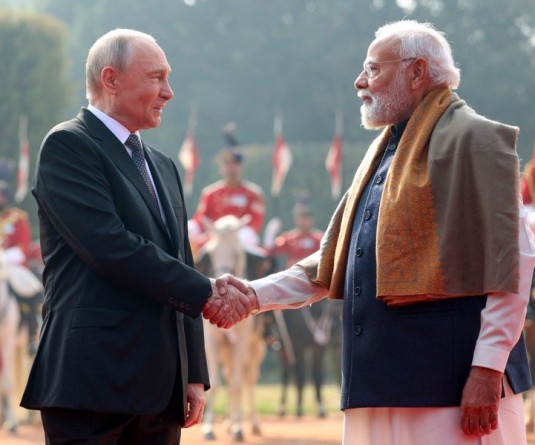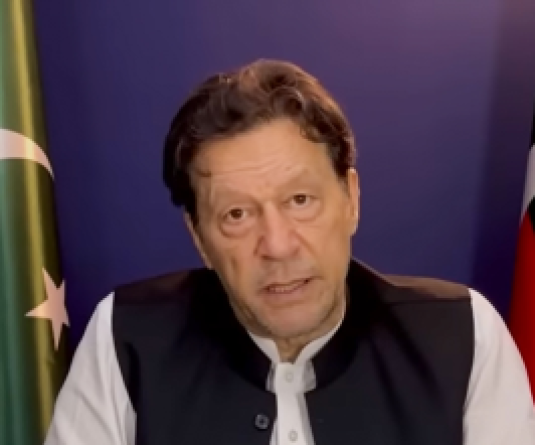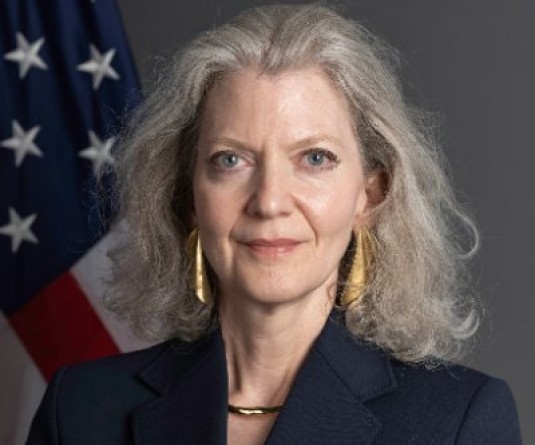
SEOUL, March 29 (AFP): North and South Korea began talks Tuesday about a potential volcanic threat from the peninsula's highest mountain, in a rare moment of cooperation after months of confrontation.
The meeting at the South Korean border town of Munsan follows heightened concern about natural disasters, after an earthquake and tsunami devastated northeastern Japan and crippled an atomic power plant there.
The North's chief delegate Yun Yong-Gun expressed concern at radioactive leakage from the Japanese plant after his 13-member team including three experts crossed the border early Tuesday.
"We are actively watching for fear that radioactive contamination may reach us," he said at the beginning of the talks with four South Korean delegates, according to Yonhap news agency.
Following the Japanese disaster, Pyongyang's earthquake bureau proposed joint research into possible activity at Mount Paekdu on the border between North Korea and China -- a peak considered sacred by both sides.
The mountain is mentioned in the South's national anthem, while North Korea says its current leader Kim Jong-Il was born there. North Korean schoolchildren are required to visit the peak to pay respects to the ruling Kim dynasty.
Since its last eruption in 1903, the 2,740-metre (9,042-foot) mountain has been inactive. But experts say it may have an active core, citing topographical signs and satellite images.
The South's National Institute of Environmental Research said in a recent report that an eruption could lower temperatures by two degrees Celsius for two months in Northeast Asia, devastating agriculture.
Geologist Yoon Sung-Hyo of Pusan National University told Yonhap last week that a massive release of sulphuric gas was detected from the mountain last November.
Yoon said it was almost impossible to predict when the volcano might erupt, but the South could provide monitoring equipment if the North allowed access. The talks could also have a political impact, according to professor Kim Yong-Hyun of Seoul's Dongguk University.
Relations have been icy since the South accused the North of torpedoing a warship in March 2010 with the loss of 46 lives. Pyongyang denies the charge, but went on to shell a South Korean island last November, killing four people. Military talks broke down in February when the North continued to refuse to accept blame for the incidents. Kim said the North was putting out feelers for possible dialogue with Seoul. "The meeting is between experts but it could serve as a breakthrough in the frozen ties between the two Koreas," he told AFP.
Unification Minister Hyun In-Taek said last week that the joint research, if well coordinated by both sides, could develop into "a whole new level" of cross-border projects. Concerns about the stability of Mount Paekdu increased after a magnitude-7.3 earthquake hit northeastern China in 2002. Some experts say the North's underground nuclear tests in 2006 and 2009 may also have destabilised its core.
In the event of an eruption, a huge lake could overflow and deluge surrounding areas, in addition to other potentially massive damage.
The meeting at the South Korean border town of Munsan follows heightened concern about natural disasters, after an earthquake and tsunami devastated northeastern Japan and crippled an atomic power plant there.
The North's chief delegate Yun Yong-Gun expressed concern at radioactive leakage from the Japanese plant after his 13-member team including three experts crossed the border early Tuesday.
"We are actively watching for fear that radioactive contamination may reach us," he said at the beginning of the talks with four South Korean delegates, according to Yonhap news agency.
Following the Japanese disaster, Pyongyang's earthquake bureau proposed joint research into possible activity at Mount Paekdu on the border between North Korea and China -- a peak considered sacred by both sides.
The mountain is mentioned in the South's national anthem, while North Korea says its current leader Kim Jong-Il was born there. North Korean schoolchildren are required to visit the peak to pay respects to the ruling Kim dynasty.
Since its last eruption in 1903, the 2,740-metre (9,042-foot) mountain has been inactive. But experts say it may have an active core, citing topographical signs and satellite images.
The South's National Institute of Environmental Research said in a recent report that an eruption could lower temperatures by two degrees Celsius for two months in Northeast Asia, devastating agriculture.
Geologist Yoon Sung-Hyo of Pusan National University told Yonhap last week that a massive release of sulphuric gas was detected from the mountain last November.
Yoon said it was almost impossible to predict when the volcano might erupt, but the South could provide monitoring equipment if the North allowed access. The talks could also have a political impact, according to professor Kim Yong-Hyun of Seoul's Dongguk University.
Relations have been icy since the South accused the North of torpedoing a warship in March 2010 with the loss of 46 lives. Pyongyang denies the charge, but went on to shell a South Korean island last November, killing four people. Military talks broke down in February when the North continued to refuse to accept blame for the incidents. Kim said the North was putting out feelers for possible dialogue with Seoul. "The meeting is between experts but it could serve as a breakthrough in the frozen ties between the two Koreas," he told AFP.
Unification Minister Hyun In-Taek said last week that the joint research, if well coordinated by both sides, could develop into "a whole new level" of cross-border projects. Concerns about the stability of Mount Paekdu increased after a magnitude-7.3 earthquake hit northeastern China in 2002. Some experts say the North's underground nuclear tests in 2006 and 2009 may also have destabilised its core.
In the event of an eruption, a huge lake could overflow and deluge surrounding areas, in addition to other potentially massive damage.






